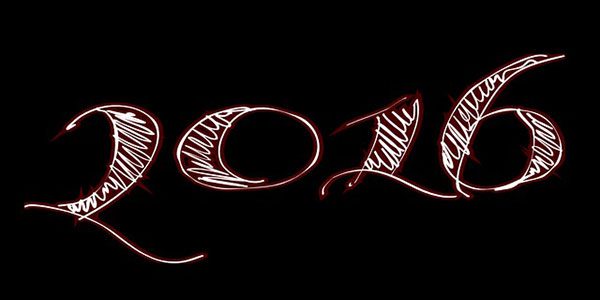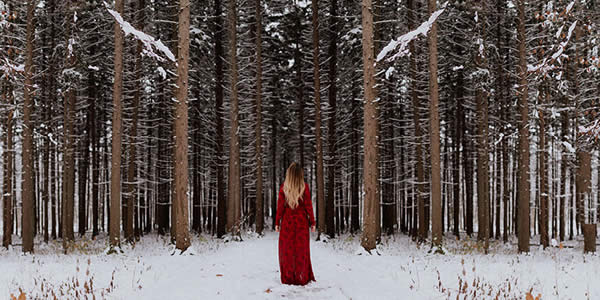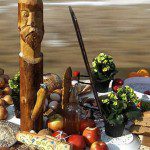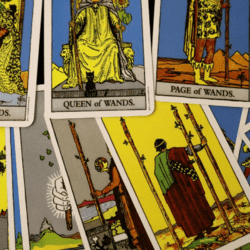2016 has been one of the best years for the Agora; even if there was a lot of troubling news (fake and otherwise) on- and off-line, here at the Agora we produced more stories in 2016–299 and we’ve still one more week to go–than any prior year. A number of our authors “graduated” to their own solo-sites on the Pagan channel, and still other authors joined us throughout the year. Today, we’ll take a look back at the top ten posts of 2016 as we await what 2017 has in store for us.

Irish American Witchcraft: The Morrigan and Samhain
Coming in at number one in 2016 was Morgan Daimler’s post about the Morrigan and Samhain. In it, she shared that many people ask her whether or not the Morrigan has a specific day associated with them (answer: they don’t) but goes on to discuss that they do have a number of connections to various holidays, but perhaps none more so than Samhain.
Outside the Circle: the Bad Faeries of Lithia
Holiday posts are consistently our most viewed stories, both here and on the rest of the channel, and our number two story was written by one of our new authors, Danette Wilson, about the Bad Faeries of Lithia. Danette enjoys writing posts about various beings from world mythology honored at various times of the year, and this one was no different. In it we learned all about entities like the Will-o-the-Wisp, Robin Goodfellow, oakmen, and phooka.
The Rantin’ Raven: This is Why We Can’t Have Nice Things
Dana Corby offers us a voice of experience and wisdom, and back in April she discussed how an old friend and elder announced her retirement from Wicca. Even more worrisome, many of the others shared similar sentiments. In This is Why We Can’t Have Nice Things, Dana posed a simple question: what can we do to support our elders and help to transfer their knowledge to others in the craft.
Dandelion Seeds: Why We All Need Indigenous European Paganism
One of our authors that graduated to her own solo-site, Rev. Melissa Hill shared our fourth post about what indigenous European paganism brings to the world, and how she came to practice a version of it. Spurned by an article on Gods & Radicals about how the ADF is particularly vulnerable to racist and extreme, right-wing ideologies, Rev. Hill discusses how she found within European Paganism a core of compassion, reciprocity, and honor that spoke to her and, she thinks, speaks to many of us.
Irish-American Witchcraft: Being Dedicated to the Morrigan – Finding Them
Morgan’s back with the fifth most popular article on the Agora in 2016. Way back in February, she began a multi-part series about being dedicated to the Morrigan. In this installment she discussed how she came to know the Morrigan through shadow work. Her group decided that each person should choose a deity with whom they each would do this work, and while Morgan hadn’t usually reached out to them, she turned to the Morrigan and began a relationship with them in an experience she describes as “putting [her] entire life in a blender,” but one that she considers worth it in the end.

The Path of She: Four Transformational Lessons for the Winter Season
Karen Clark finds her self at the number six position in our top ten with an article that, considering how recently it was written, has been extremely well received online. In Four Transformational Lessons for the Winter Season, Karen shares with us some wisdom related to the magic of personal rebirth during this, the darker half of the year.
The Rantin’ Raven: a Wiccan Speaks Out About Cults
In a post originally written for non-Pagans, Dana shared her thoughts about Wicca and cults and if the former is actually one of the latter. The answer depends largely on who you ask, but boils down to “it’s complicated.” She goes on to describe what it means to be a cult, both in the ancient and modern world, and how a person might realize if they’re involved in a faith practice that might be more dangerous than others.
Irish-American Witchcraft: Álfatrú – Believing in the Hidden Folk
Labels are important to everyone, but we seem to accumulate a lot of them in Paganism because our beliefs and practices are complex, intersecting, and multi-layered. With a top-ten hat trick, Morgan shares with us a label of her own, Álfatrú, which simply means “belief or faith in elves,” and both her hesitation in using it as well as her process in coming to understand it better and more completely.
Wayfaring Woman: The Faces of Freyja – More Than a Love Goddess
Coinciding with Valentine’s Day, Tamilia wrote the article that comes in at number nine in 2016. In it she shares with us how Freyja is more than “just” a love goddess and how much she’s come to mean to her. As she puts it: “No matter how Freyja presents, she is always whole unto herself, honoring her own nature, and in so doing lifting up the gods and the people around her.”
Happily Heathen: Keep Your Virtues Out of My Heathenry
And, coming in at number ten, is Cara Freyasdaughter’s post, Keep Your Virtues Out of My Heathenry. In the article, Cara shares with us her misgivings about religiously motivated ethical systems and how they’ve been used throughout history as the motivation for some of our most atrocious endeavors. She continues to think about Heathen moral codes (like the Nine Noble Virtues) and how even they are sometimes used to justify heinous acts.
♦ ♦ ♦
Clearly, these were just a sample of our (soon-to-be) over 300 posts in 2016. And, sometime the number of views that separated one post from another was measured in the single digits. As the Agora’s manager, I remain very proud to be working with the excellent authors we have here, on the rest of the Pagan channel, and with the wider Patheos family. As 2016 comes to a close, I wish you all the blessings of the gods–yours, mine, and any in between–including health, happiness, and a safe hearth.

Patheos Pagan on Facebook.

the Agora on Facebook
Please use the links to the right to keep on top of activities here on the Agora as well as across the entire Patheos Pagan channel.

















